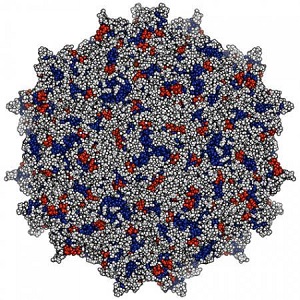 |
| Vectored immunoprophylaxis model--Courtesy of CalTech |
Building on research they performed in 2011, scientists at the California Institute of Technology showed that they can use an antibody delivery method to combat HIV across mucosal surfaces. The technique could help prevent vaginal transmission of the virus in humans, according to the university.
In their original work, the researchers developed an approach they called Vectored ImmunoProphylaxis, or VIP, which provides the antibodies to protect against infection. Unlike a vaccine, the vectors--small, harmless viruses--deliver a gene that prompts the body to create the antibodies. This skips the step of vaccination that involves placing the actual virus in a host.
But the tests back then involved injecting the vectors into the mouse's leg muscle, which isn't a real-world application for HIV prevention. In the new research, published in the journal Nature Medicine, the CalTech team demonstrated the protection of humanized mice from mucosal HIV infection, the type that occurs across the mucosal surfaces during sexual intercourse. According to the abstract, the mice that had the antibody injection were completely resistant to HIV when the virus was introduced vaginally.
And the VIP delivery vehicle is what allows this large number of antibodies to travel safely and effectively within the blood stream, the researchers note.
"The method that we developed has now been validated in the most natural possible setting in a mouse," said lead author and Nobel laureate David Baltimore, in a statement. "This procedure is extremely effective against a naturally transmitted strain and by an intravaginal infection route, which is a model of how HIV is transmitted in most of the infections that occur in the world."
Although the team notes that the translation of the mouse model to humans is a far cry, they are now working with the National Institutes of Health's Vaccine Research Center on the beginnings of a clinical program evaluation, according to the university's announcement.
- here's the CalTech announcement
- and here's the abstract